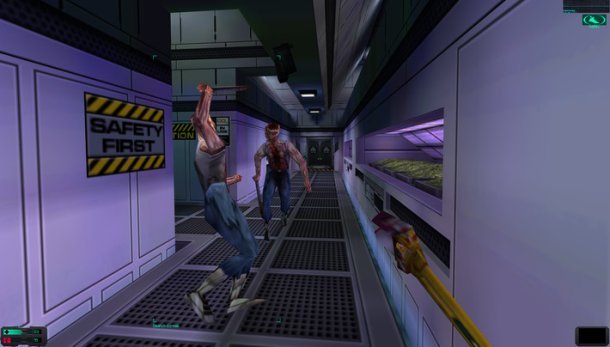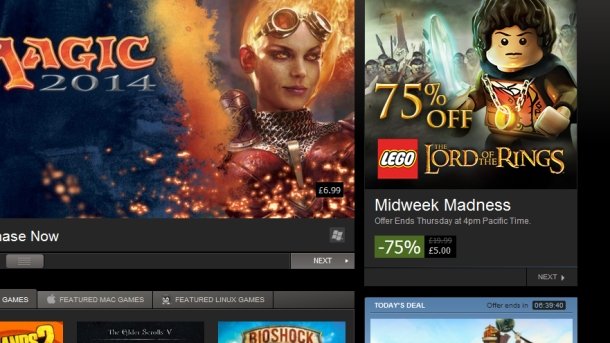All the games that matter - new and old

The new consoles may not have backwards compatibility, but it's okay, because Sony and Microsoft will almost certainly re-release their past catalogue for you to buy again. How wonderfully generous of them.
The alternative is to not treat classic games as a step “backwards”. How about instead we see games as a continuous timeline that has evolved over the years. And how about we let people buy games from any point along that timeline. And keep them. And be able to play them. No, unfortunately such an idea is just too outlandish to... Oh, wait, it's what the PC does.
That game disc you've got in a dusty box in your attic? It'll still work. It might need a bit of care: some DOSBox emulation, or a community patch, or a weird and fragile balance of Windows compatibility settings. But the point is it's a PC game. Even if it was made for a PC in 2003, it'll play on a PC in 2013.
Revisiting our history is even easier in the digital age. If you don't want to spend time patching and tweaking, you can visit GOG - a service created to provide working digital downloads of classic games – or Steam, where you can build a library that spans decades.
Prefer something new? Don't worry, we've got that covered too. Behind the conference double-talk of what an exclusive means, it's clear that the PC has become too big to ignore. Even the games that weren't announced - Destiny and Ubisoft's The Division - are most likely just waiting for that timed exclusivity period to run out.
It's cheap

It might be possible to put together a passable PC for the price of an Xbox One, but the PS4's lower point of entry does mean that consoles will remain the cheapest way to play big-budget games. However, the fact remains that the price of games is only likely to go up - and console gaming is expensive enough as it is.
That's the core of the current kerfuffle over the status of selling and buying pre-owned games: for many people, trade-ins are the only way to keep the price of their hobby manageable. The PC has never had much of a preowned scene, so we found a different solution: Steam sales, Humble Bundles, and so on. Very few games retail at top dollar for very long, and the free-to-play scene - which is only now getting its start on console - is now big and mature enough to be a viable way to spend the majority of your time.
Keep up to date with the most important stories and the best deals, as picked by the PC Gamer team.
Buying a PC that's powerful enough to see out the next generation of consoles might cost a bit more, but you'll make that money back in games while reaping all of the benefits of owning the system you put together. E3 might be won or lost by whichever console developer can offer players the least awful deal, but the PC proposes something else: why not have a good deal, instead? Picking the lesser of two evils doesn't make a whole lot of sense when you have the choice to pick something that is largely not evil.
PC Gamer is the global authority on PC games—starting in 1993 with the magazine, and then in 2010 with this website you're currently reading. We have writers across the US, Canada, UK and Australia, who you can read about here.


